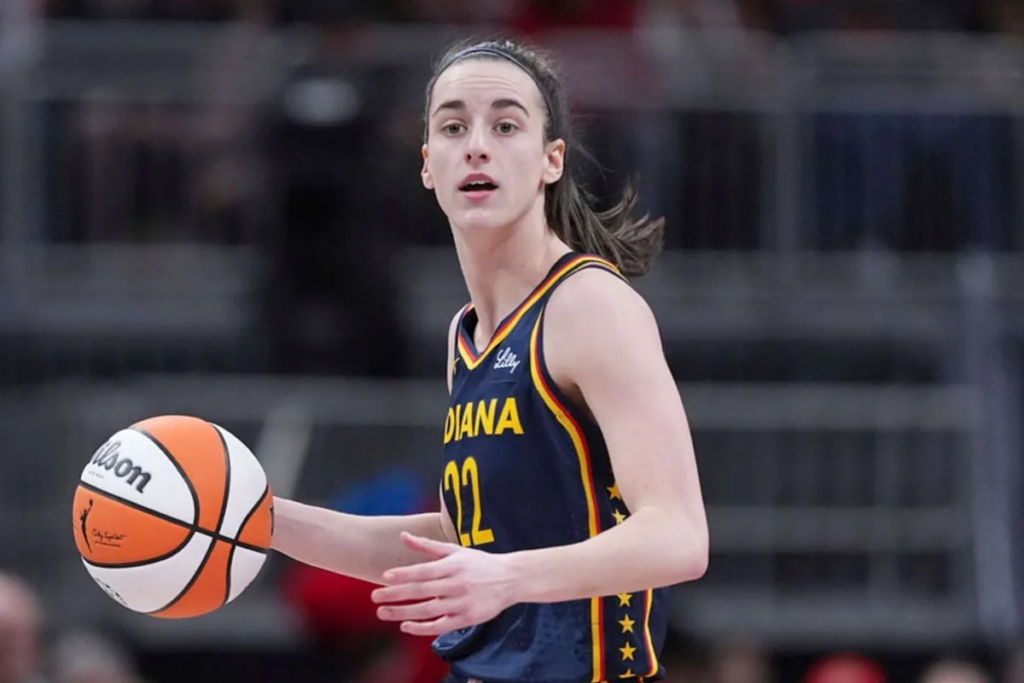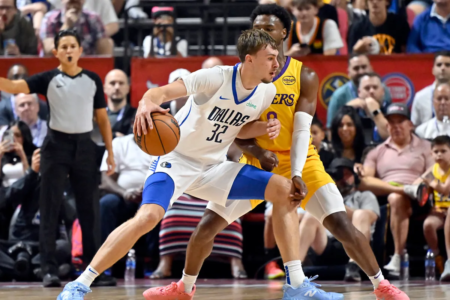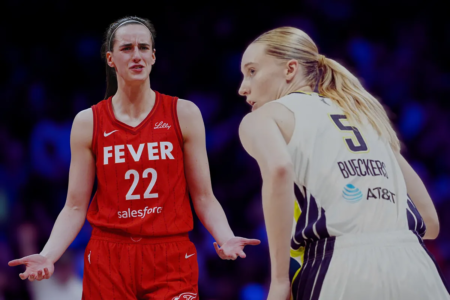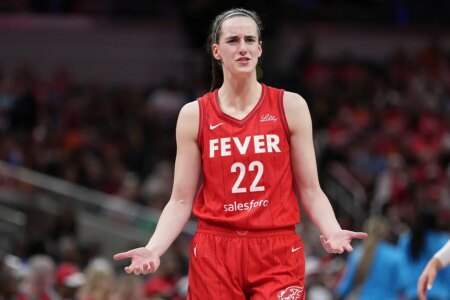The Indiana Fever didn’t just bounce back from a Game 1 loss against the Atlanta Dream – they delivered a statement. With Natasha Howard leading the way with 26 points in an 81-76 win, the Fever showed they’re not only built to compete, but to respond.
And the reason behind their resurgence may have less to do with playbooks and more to do with people. From the moment Indiana stepped onto the floor at State Farm Arena, there was a different energy.
This wasn’t just about avenging a loss – it was about channeling belief, unity, and trust that started behind closed doors. For Howard, the shift wasn’t just tactical – it was deeply personal.
“Getting out of my own head. That’s the thing,” Howard admitted postgame. “I was in my own way. But thank God I got to have my teammates behind me to bring that confidence out of me tonight. I couldn’t do that without them, tonight, also my coaches as well.”
Her honesty revealed a powerful dynamic inside the Fever locker room: supportive accountability, where players lift one another up during rough patches and push each other toward their best.
Positivity becomes a competitive advantage
It wasn’t just the star players who drove that shift. Lexie Hull‘s role as an emotional spark plug proved just as important as any made shot or assist.
“I’m really just happy to see my teammates do well,” Hull said. “And when they’re not, trying to pick them up as much as I can. So if that’s a high five, if that’s words of encouragement…
“I just try to bring out the best in people and be that positive energy because games go up and down. Hopefully, those downs are as short as they can be.”
That kind of encouragement, no matter how subtle, holds real value. Coach Stephanie White referenced a 2015 study from UC Berkeley that found the NBA’s most successful teams were the ones that consistently showed high levels of physical and verbal support among teammates.
“There was a study done in the NBA a while back about how important those moments are,” White said. “Doesn’t matter if things are good or bad-just that little bit of encouragement, that little bit of ‘We got your back.’ I mean, it all matters.”
It mattered for Caitlin Clark, too. The rookie sensation struggled from long range, going 0-for-5 from three and ending her 140-game streak with a made triple. Still, Clark tallied 11 points and six assists – a testament to her evolving ability to impact the game in other ways.
Collective resilience defines the Fever’s identity
While the team relied on Kelsey Mitchell’s 17 points and Sophie Cunningham’s emotional edge to close out the game, it was White’s strategic adjustments that held it all together.
“I don’t feel like we match up well with them,” White admitted postgame. “They’ve got a lot of Olympians, they’re quick and skilled on the perimeter, big and strong inside, and they’ve got experience.”
Rather than being overwhelmed by Atlanta’s physicality and star power, Indiana leaned into what sets them apart – versatility, depth, and trust. “We have to use our versatility to combat some of that size,” White said.
“And we have to use our depth to try to wear down their really great guards. That’s why it takes a collective effort, and the contributions from our bench were huge.”
With Aliyah Boston holding the interior and a deep rotation of wings and guards around her, the Fever are built to adjust – and endure.
Looking ahead to their June 10 rematch with the Dream, Indiana is proving that the most dangerous teams aren’t always the tallest or fastest – they’re the ones who believe in each other the most.
The Fever’s real secret weapon isn’t their shooting or their schemes. It’s the locker room heartbeat that keeps them moving forward.
Read the full article here











